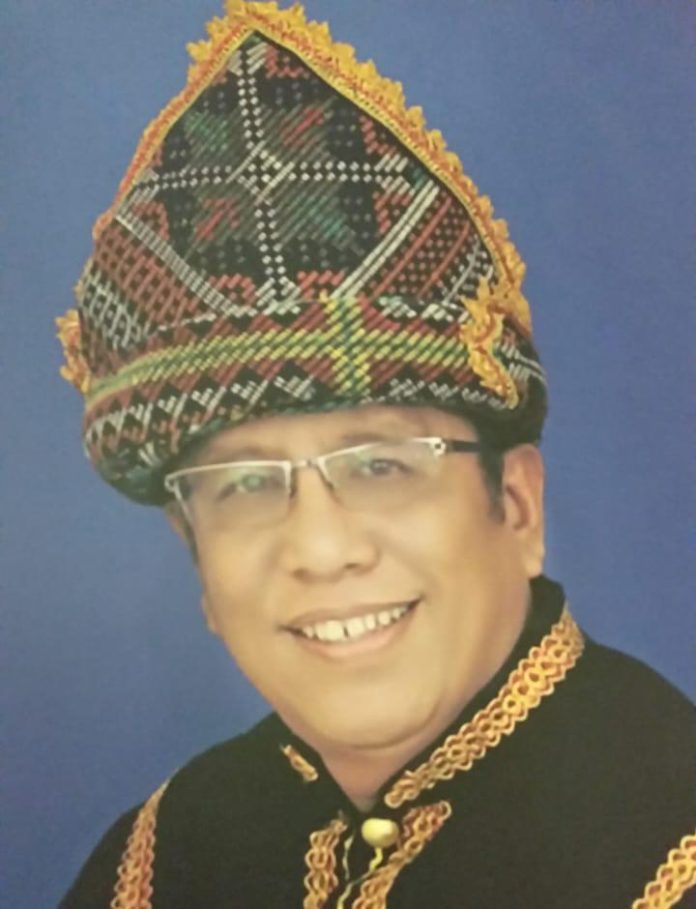RANAU: In the midst of the ongoing controversy surrounding the proposed repeal of Article 6(7), the President of Parti Kerjasama Anak Negeri Sabah, Datuk Henrynus Amin, has offered his perspective, urging the public to appreciate the historical context in which the provision was enacted in 1990.
Henrynus who once served as the Chief Political Secretary to the Chief Minister (1989 – 1994) emphasized that Article 6(7) was originally introduced by the Parti Bersatu Sabah (PBS) government as a safeguard against illegal power grabs by minority political parties, drawing attention to the infamous power grab incident of 1985.
During the 1985 General Election, PBS emerged victorious with 25 out of the 48 seats in the State Assembly, surpassing the 50% threshold of contested seats and securing a simple majority. However, the defeated candidate, Harris Salleh, refused to concede defeat and instead devised a devious plan to seize power by exploiting the 6 nominated Assemblymen.
Convincing the late Tun Mustapha that appointing him as the Chief Minister would allow the nominated Assemblymen to secure a majority in the state assembly, Harris Salleh sought to manipulate the democratic process.
Under duress, the Tuan Yang Terutama (TYT) reluctantly supported the scheme. Fortunately, Musa Hitam, the Acting Prime Minister at the time, intervened to uphold the rule of law and ensure a just resolution.
Thanks to Musa Hitam’s intervention, the power grab attempt was thwarted, and the subsequent court judgment ruled in favor of Pairin, affirming the validity of his appointment as the Chief Minister.
Against the backdrop of this pivotal event, Article 6(7) was conceived and enacted to prevent future abuses of power. The provision aimed to address the potential misuse of the 6 nominated Assemblymen by minority political parties in their pursuit of securing a majority.
By defining the majority as a political party winning more than 50% of elected seats in a general election, Article 6(7) served as a legal safeguard to protect against such power grabs.
Based on the principles of the Westminster system of government, if no political party secures more than 50% of elected seats or an absolute majority, Article 6(3) comes into play.
Under this provision, the TYT possesses the sole discretion to appoint the leader of a political party whom he believes can command the confidence of the majority in the state assembly.
Traditionally, the political party with the most seats is invited by the TYT to form a coalition government in order to attain the necessary majority. If the party with the most seats fails to gather the required numbers, the TYT would then extend the invitation to the next political party with the highest seat count.
Article 6(3) and Article 6(7) are complementary provisions within the Sabah governance framework.
In the absence of a clear majority, the TYT exercises discretion in appointing the Chief Minister in accordance with Article 6(3).
However, if a political party secures more than 50% of the seats, under Article 6(7) the leader of that party is determined as the majority leader.
The inclusion of Article 6(7) was intended to prevent potential power grabs by defeated parties leveraging on the 6 nominated Assemblymen.
Henrynus who was also the former Member of Parliament for Ranau (then Kinabalu) stressed that as long as Sabah retains the provision for 6 nominated Assemblymen, Article 6(7) remains highly relevant in protecting the democratic process.
Its presence is crucial to preserving the integrity of governance and preventing the misuse of nominated Assemblymen by political parties that fail to secure a majority of elected seats.
The ongoing debate over the repeal of Article 6(7) highlights the significance of understanding the historical context surrounding its enactment.
Henrynus’ insights shed light on the purpose and importance of this provision in safeguarding the democratic principles that underpin Sabah’s governance.


